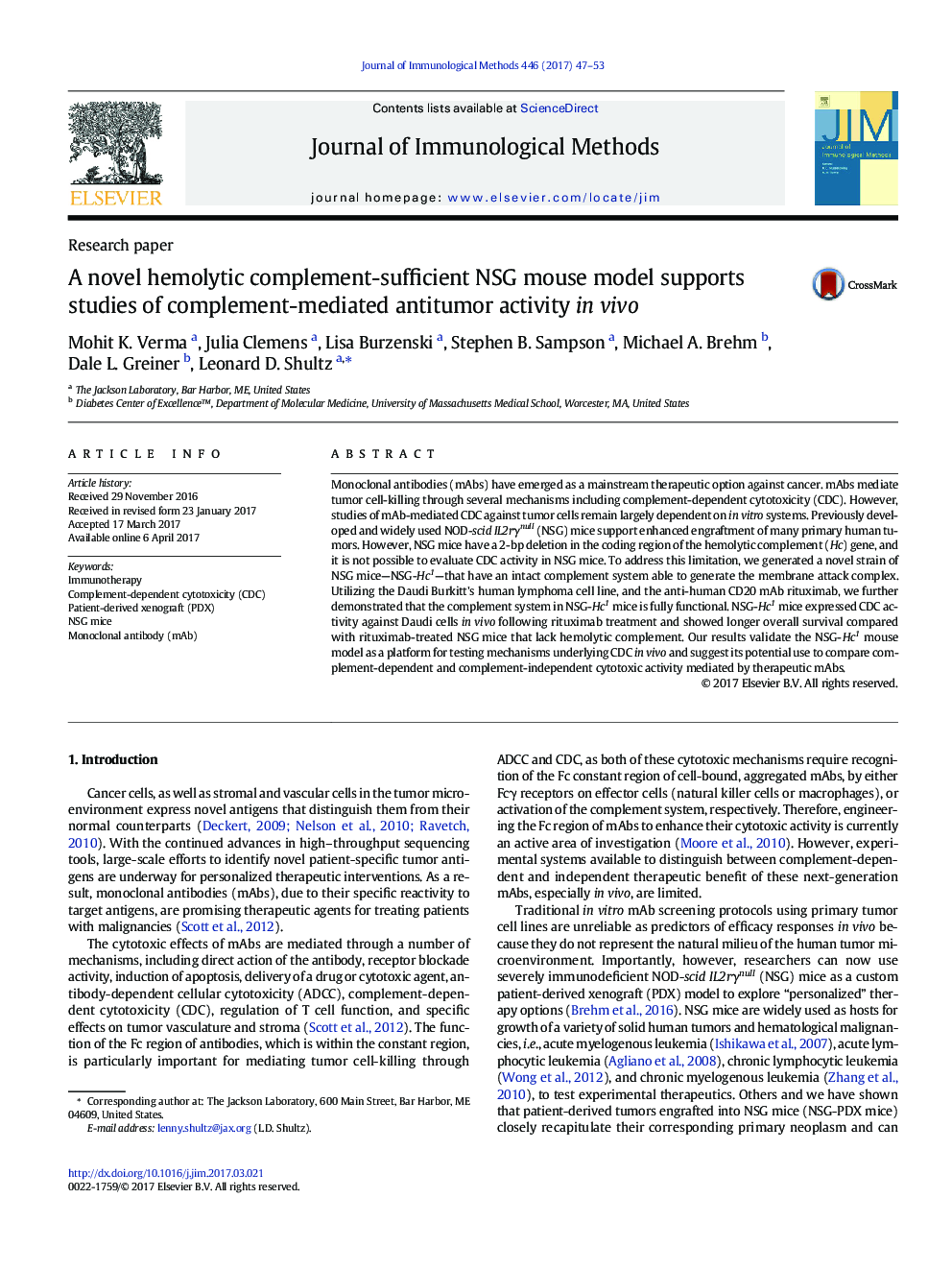| Article ID | Journal | Published Year | Pages | File Type |
|---|---|---|---|---|
| 5522003 | Journal of Immunological Methods | 2017 | 7 Pages |
Monoclonal antibodies (mAbs) have emerged as a mainstream therapeutic option against cancer. mAbs mediate tumor cell-killing through several mechanisms including complement-dependent cytotoxicity (CDC). However, studies of mAb-mediated CDC against tumor cells remain largely dependent on in vitro systems. Previously developed and widely used NOD-scid IL2rγnull (NSG) mice support enhanced engraftment of many primary human tumors. However, NSG mice have a 2-bp deletion in the coding region of the hemolytic complement (Hc) gene, and it is not possible to evaluate CDC activity in NSG mice. To address this limitation, we generated a novel strain of NSG mice-NSG-Hc1-that have an intact complement system able to generate the membrane attack complex. Utilizing the Daudi Burkitt's human lymphoma cell line, and the anti-human CD20 mAb rituximab, we further demonstrated that the complement system in NSG-Hc1 mice is fully functional. NSG-Hc1 mice expressed CDC activity against Daudi cells in vivo following rituximab treatment and showed longer overall survival compared with rituximab-treated NSG mice that lack hemolytic complement. Our results validate the NSG-Hc1 mouse model as a platform for testing mechanisms underlying CDC in vivo and suggest its potential use to compare complement-dependent and complement-independent cytotoxic activity mediated by therapeutic mAbs.
